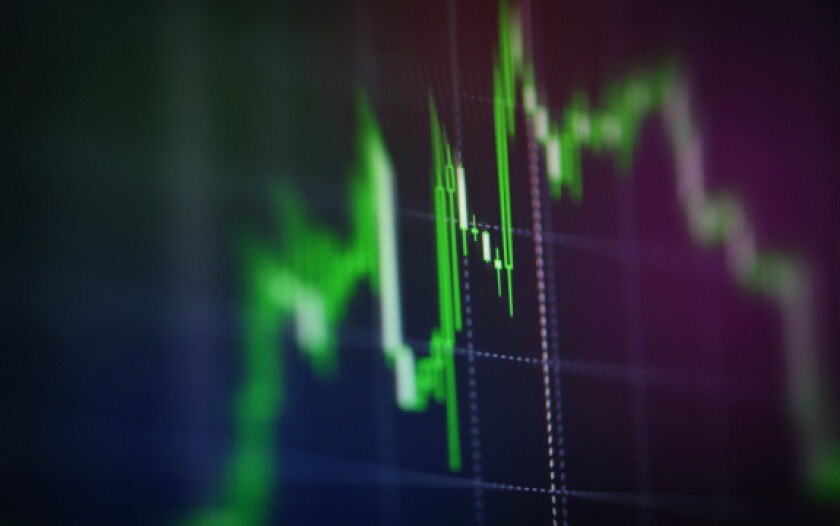The PACE and solar ABS sectors have experienced a slowdown in originations because of the virus, which has translated into a lack of deal flow thus far in 2020.
There has been just one residential PACE deal, issued by Renovate America just before the market shut down early in March, and one solar ABS transaction by Sunnova, which was priced in February. Two more deals are moving through the pipeline this month, according to ABS 15G filings, from residential issuer PACE Funding and solar issuer Loanpal.
However, market participants believe that Covid-19 will only cause a “blip” in the market, as investor demand for sustainable asset classes will persist in spite of the virus.
“Residential solar is a door to door business, where you are trying to sign consumers up to retrofit solar panels on their roofs,” said Stanford Renas, partner at Katten Muchin Rosenman. “With social distancing and stay at home orders, we just can’t do that. That will cause a slowdown in the short term, but I think we already hit the tipping point where people really see a green economy as the way of the future.”
The situation with PACE has been similar, with the closure of commercial office buildings and suspensions of construction as a result of city shutdowns. While some activity has been restored for a few segments of the real estate market, such as multifamily properties, hotel projects are still at a standstill given the uncertainty around future demand for travel and hospitality.
“C-PACE came to a screeching halt in mid-March as the capital markets froze up,” said Lain Gutierrez, chief executive officer of C-PACE provider CleanFund. “Since then, confidence in the market has returned and we have started seeing proposals for new deals. As we are now getting into the summer and the economy starts to open up, there’s an upbeat sentiment that we are through the worst and things are now improving.”
The continued demand for PACE and solar is unsurprising, given the rise of ESG and sustainable finance as a core strategy for many investors, sources said. In addition to filling a sustainable investment bucket, the assets are increasingly offering strong relative value. Renewable energy and battery storage financing, for example, has advanced to a point where it now offers very competitive pricing.
“Perhaps, at least in the past, there was a notion that paying attention to environmental issues is something you can only afford to do when your basic needs are covered, whereas if you really have to batten down the hatches and save money, environmental concerns fall by the wayside,” said Laurence Pettit, partner at Kramer Levin. “I don’t think that’s a factor in this particular case because renewable energy’s cost of financing is quite low and competitive. They have become pretty mainstream and consumers appreciate the value proposition that they often bring.”
The recent oil crisis has proved the unsustainable nature of the asset, and may put pressure on oil-dependent countries to “diversify their revenue sources”, JP Morgan analysts wrote in an ESG report.
Covid-19 may also bring new opportunities for PACE and solar, as workers adapt to precautions against further outbreaks long after the current pandemic has passed.
“A lot of commercial property owners are thinking about how they can modify their buildings to allow a safe return to work, not just operationally, but in terms of physical upgrades,” said Robert White, executive director of green and sustainable financing solutions at Natixis.
Some building owners are said to be thinking of completely overhauling buildings’ HVAC (heating, ventilation and air conditioning) systems to ones used in operating theatres in hospitals, added White, which include UV light technology and filtration that can kill pathogens.
Others are considering an update to the elevators to make them require as little contact as possible, by allowing a simple swipe of a card to automatically select the floor for each person entering the building.
“Of course, not every building owner is going to do this, but once they do, you can think about bundling in energy efficiency programmes as well, along with upgrades and finance it through C-PACE,” White said.
This potential extends to healthcare and medical office buildings that need to be “Covid-19 proofed”, said Lain, which is an opportunity CleanFund is chasing.
For solar securitizations, there may be an increased demand for solar panels once consumers adjust to the new realities of working from home more often before, and even when, a coronavirus vaccine arrives.
“Given that more people are working from home, and therefore families are using more electricity during the day, having solar panels installed at home may present an even stronger value proposition than before,” said Jamie Kocis, partner at Kramer Levin.

